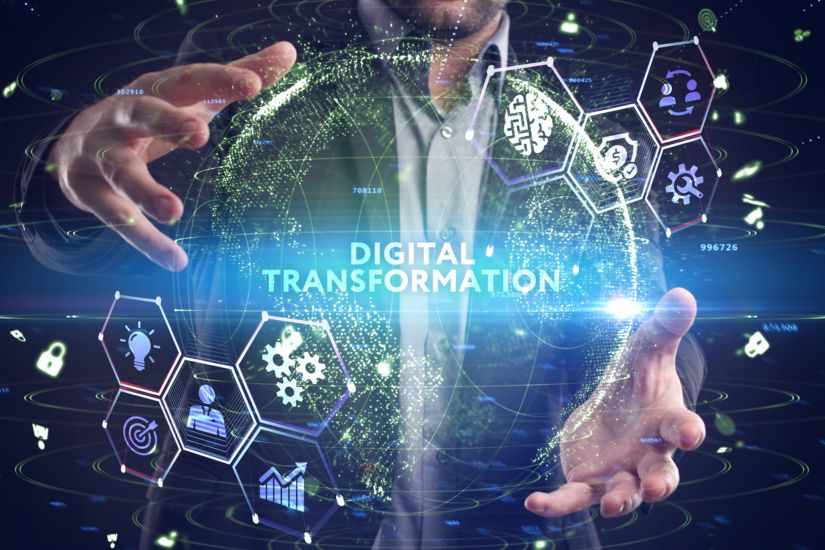As we stand on the cusp of the Fourth Industrial Revolution, technology continues to evolve, reshaping our lives in unimaginable ways.
Two concepts that have emerged amidst this transformative era are Web3 and the Metaverse. These groundbreaking technologies hold the promise of revolutionizing our digital experiences, blurring the boundaries between virtual and physical realities.
Have you ever considered who truly owns the posts you make on social media platforms like Twitter or Facebook? If your immediate response is “Yes,” prepare to be astonished because the reality is quite the opposite.
The data you access and the content you generate on social media and the internet do not belong to you. Instead, they are under the ownership and control of major entities like Meta (formerly Facebook) and Twitter.
This lack of ownership and transparency within the current Web 2.0 framework has paved the way for the emergence of Web3 technology.
Understanding Web3:
Web3, also known as the decentralized web, is an evolution of the traditional web infrastructure. While Web 2.0 brought us social media, cloud computing, and mobile applications, Web3 is built on the foundation of blockchain technology. It aims to decentralize the internet, giving users greater control over their data and digital identities.
At its core, Web3 enables peer-to-peer interactions without the need for intermediaries. Blockchain and smart contract technologies facilitate secure and transparent transactions, eliminating the reliance on centralized authorities. This shift empowers individuals to have ownership and sovereignty over their digital assets, enabling new economic models, such as decentralized finance (DeFi) and non-fungible tokens (NFTs).
In the context of industrial revolutions,
Web3 can be seen as a manifestation of the Fourth Industrial Revolution.
Just as the First Industrial Revolution mechanized production with steam power and machinery, and the Second Industrial Revolution introduced mass production and electricity, Web3 introduces a paradigm shift by decentralizing the control of data and digital assets. Blockchain and smart contract technologies enable secure, transparent, and peer-to-peer transactions, eliminating the need for intermediaries and ushering in a new era of trust and ownership.
Understanding the Metaverse:
The Metaverse, a term popularized by science fiction novels like Snow Crash and Ready Player One, refers to a virtual universe where people can interact with each other and digital objects in real-time. It is an immersive and interconnected space that combines elements of augmented reality (AR), virtual reality (VR), and the internet. In the Metaverse, users can explore, create, trade, and socialize in a persistent virtual environment.
While the concept of the Metaverse has been around for some time, recent advancements in technology have brought it closer to reality. Companies like Facebook (now Meta) and Epic Games are investing heavily in creating immersive experiences and virtual worlds, aiming to build a shared and inclusive digital space for millions of users.
When examining the Metaverse through the lens of industrial revolutions,
it aligns with the characteristics of the Third Industrial Revolution, often referred to as the Digital Revolution. The Digital Revolution, marked by the rise of computers, the internet, and digital technology, transformed the way we store, process, and share information. Similarly, the Metaverse revolutionizes our digital interactions by creating a shared and immersive space where users can explore, create, trade, and socialize.
Web3 vs Metaverse: Converging Paths
While Web3 and the Metaverse are distinct concepts, they share commonalities that hint at a convergence of their paths in the future.
- Decentralization and Empowerment: Both Web3 and the Metaverse embody principles of decentralization. Web3 empowers individuals by giving them control over their data and digital identities, while the Metaverse empowers users by enabling them to interact, create, and own assets in a virtual world.
- Connectivity and Interoperability: Web3 aims to create an interconnected web of decentralized applications, fostering seamless communication and collaboration. Similarly, the Metaverse envisions a network of interconnected virtual worlds, where users can carry their digital assets and identities across different platforms and experiences.
- New Economic Models: Web3 introduces innovative economic models, such as decentralized finance and non-fungible tokens, disrupting traditional systems. Likewise, the Metaverse presents new opportunities for virtual economies, where users can monetize their creations and participate in immersive experiences.
Distinguishing Features: Web3 vs Metaverse
While there are overlapping concepts, Web3 and the Metaverse also have distinct characteristics that set them apart:
- Scope: Web3 focuses on reimagining the infrastructure and underlying technologies of the internet, emphasizing decentralized governance and ownership. The Metaverse, on the other hand, is more user-centric, emphasizing immersive experiences, virtual economies, and social interactions within a virtual universe.
- Technology Stack: Web3 relies heavily on blockchain technology, smart contracts, and decentralized applications (DApps). The Metaverse incorporates a broader range of technologies, including VR, AR, artificial
Conclusion : Web3 vs Metaverse
The convergence of Web3 and the Metaverse holds tremendous potential. Web3 empowers users with control over their digital identities, which can then be utilized, traded, and experienced in the dynamic and interconnected environment of the Metaverse. This convergence has the power to create a digital frontier where individuals truly own and shape their online presence.
However, as we navigate this landscape, it’s crucial to consider privacy, security, and inclusivity. Ensuring these technologies empower individuals, foster interoperability, and create a diverse and accessible digital ecosystem is essential.
Ultimately, the unfolding story of Web3 and the Metaverse goes beyond technology advancement. It unlocks possibilities for human interaction, creativity, and ownership in the digital realm. Responsibly navigating this emerging landscape allows us to harness their potential for the benefit of all.
Don’t miss out on the chance to bring home the bacon! Reach out to the industry leaders and embark on an exciting journey towards profitability and innovation.
Contact the best Web3 development company and Metaverse development company today and position your business at the forefront of the next technological revolution!
For tech-savvy individuals, the Metaverse represents their version of Web 3.0, while for others, Web 3.0 embodies what the Metaverse stands for.

